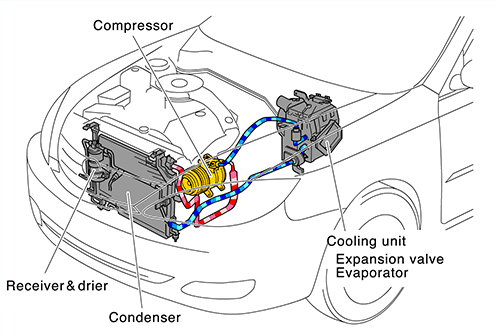Maintenance of Expansion Valves in Industrial Systems
- Home
- Maintenance of Expansion Valves in Industrial Systems
-
By: aadmin
- Comments Off on Maintenance of Expansion Valves in Industrial Systems
The Essential Guide to Maintenance of Expansion Valves in Industrial Systems
Expansion valves play a critical role in various industrial systems, regulating the flow of refrigerant or fluid to maintain optimal conditions. Proper maintenance of these valves is essential to ensure the efficiency, reliability, and longevity of the entire system. In this comprehensive guide, we’ll delve into the importance of expansion valve maintenance and outline key steps to keep them functioning at their best.
Expansion valves are vital components in refrigeration, air conditioning, and other thermal management systems. They control the flow of refrigerant into the evaporator, where it absorbs heat from the surroundings, thus facilitating cooling. In industrial settings, where these systems operate under demanding conditions, expansion valves must be regularly maintained to prevent malfunctions, inefficiencies, and costly downtime.
Routine inspection is the cornerstone of expansion valve maintenance. Regularly scheduled checks allow technicians to identify any signs of wear, corrosion, or leakage. Visual inspection should encompass all components of the valve, including the valve body, diaphragm, spring, and sensing bulb. Any abnormalities should be promptly addressed to prevent further damage or system failure.
Proper calibration is crucial for ensuring the accurate operation of expansion valves. Over time, factors such as temperature fluctuations and system wear can lead to deviations in valve performance. Calibration involves adjusting the valve settings to maintain the desired superheat or subcooling levels, optimizing system efficiency. This process should be carried out by qualified technicians using specialized tools and equipment.
Cleaning is another essential aspect of expansion valve maintenance. Accumulation of dirt, debris, or contaminants can obstruct the valve orifice, impeding the flow of refrigerant and compromising system performance. Regular cleaning helps to prevent blockages and ensures smooth operation. Care should be taken to use compatible cleaning agents and methods to avoid damaging delicate valve components.
In addition to routine maintenance tasks, expansion valves may require occasional repairs or replacements. Age, wear, and environmental factors can contribute to valve degradation over time. Timely repairs can prevent minor issues from escalating into major problems, minimizing downtime and repair costs. When replacement becomes necessary, it’s important to select high-quality valves that are compatible with the system specifications.
Furthermore, proper insulation of the sensing bulb is essential for accurate valve operation. The sensing bulb detects the temperature of the refrigerant or fluid at the evaporator outlet, allowing the valve to adjust its opening accordingly. Insufficient insulation can result in inaccurate temperature readings, leading to inefficient system operation. Technicians should ensure that the sensing bulb is adequately insulated and positioned to provide reliable feedback to the valve.
Regular performance testing is recommended to assess the overall efficiency and effectiveness of expansion valves. This may involve measuring system parameters such as superheat, subcooling, and refrigerant flow rates. Performance testing helps identify any inefficiencies or abnormalities in valve operation, allowing for corrective action to be taken promptly.
In conclusion, maintenance of expansion valves is essential for the reliable and efficient operation of industrial systems. By adhering to a comprehensive maintenance regimen that includes inspection, calibration, cleaning, repairs, insulation, and performance testing, operators can prolong the lifespan of valves, optimize system performance, and minimize the risk of costly downtime. Investing in regular maintenance not only ensures the smooth operation of expansion valves but also contributes to the overall productivity and profitability of industrial processes.

